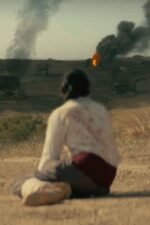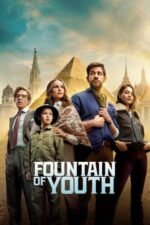More Than Dates & Battles: Why History on Film Still Matters (and What to Watch)
Okay, let's talk about history in film. Not just the dry textbook kind – but the living, breathing stuff that gets translated onto the screen. It’s a fascinating thing, isn’t it? How do you take something so complex, so layered with nuance and consequence, and distill it into a two-hour (or sometimes longer!) experience? And more importantly, what can film teach us about history that we might miss in other formats?
For me, the best historical films aren't just about recounting events. They’re about exploring the human condition within those events – the moral dilemmas, the personal sacrifices, the ripple effects of decisions made long ago. Think about "Reaping the Whirlwind," for example. It isn’t a sweeping epic about WWII; it’s an intensely focused look at one man's conscience in the face of overwhelming pressure. The impending victory doesn’t erase the horror – it amplifies it, because he knows what’s coming and feels complicit. That tension is palpable, and that’s what makes it so powerful.
And it’s not just about war stories. "Red April" beautifully illustrates how historical dramas can capture a specific cultural moment—the fight for Bulgarian independence from the Ottoman Empire – with incredible detail and emotional resonance. It's a reminder that history isn't some distant, abstract concept; it's made up of individual struggles and acts of courage (and sometimes, fear).
What I find particularly compelling is how filmmakers are increasingly playing with historical narratives in inventive ways. "The Haunting of Prince Dom Pedro de Alcântara Francisco António João Carlos Xavier de Paula Miguel Rafael Joaquim José Gonzaga Pascoal Cipriano Serafim" – yes, that’s a mouthful! – is brilliant because it uses the framework of a modern classroom to explore Brazil's past and the responsibility we have to remember those who shaped our world. It’s not about jump scares; it’s about the unsettling realization that forgetting history can be its own kind of haunting. It reminds me a little bit of how The Simpsons often uses historical references for comedic effect, but with a much more serious and thoughtful purpose.
Even documentaries like "Real Haunts 4" and “De Borêta a Maria Bela” offer unique perspectives. The former blends paranormal investigation with historical exploration, while the latter beautifully documents the evolution of faith within a community over a century. They show us that history isn’t just about grand narratives; it's also woven into the fabric of everyday life, in the places we inhabit and the beliefs we hold.
Ultimately, watching history on film is an act of empathy. It allows us to step outside our own time and experience the world through different eyes. It challenges us to consider what we would have done in those circumstances, and it reminds us that the past isn't just something to be studied – it’s a vital part of who we are.
So, what should you watch? Well, all these films offer something unique. But if you're looking for a starting point, I'd suggest "Reaping the Whirlwind" - it's a masterclass in moral complexity and cinematic tension. And don’t be afraid to dive into those documentaries; they often reveal hidden gems of historical understanding!







































